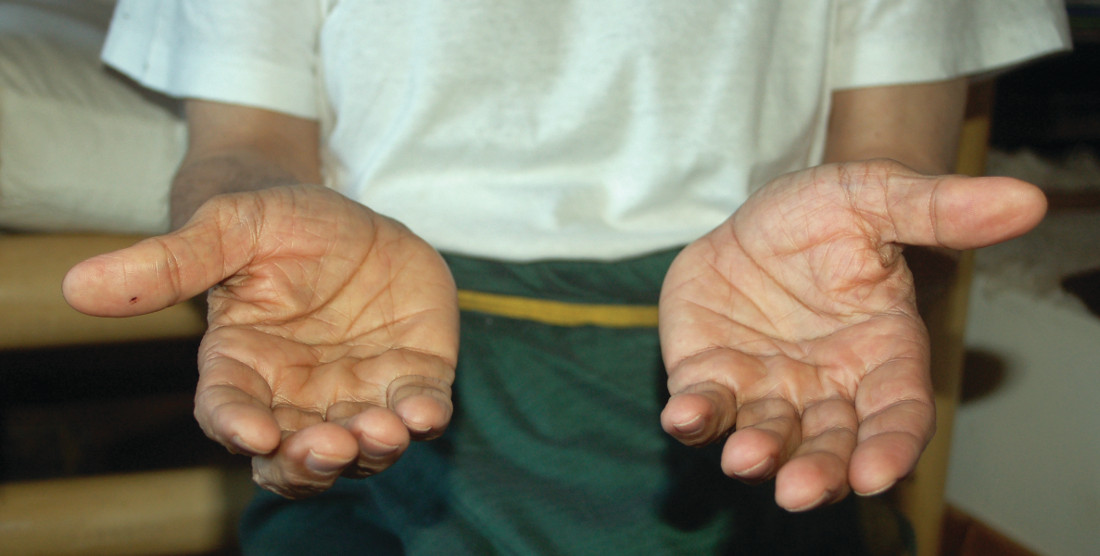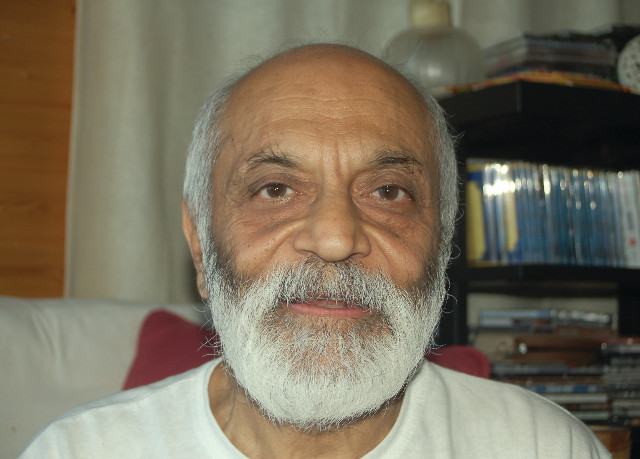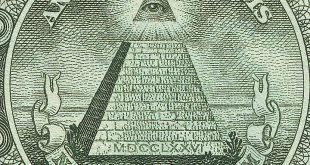Do you look for solutions at Karuna?
Yes, yes. That’s why we built it in 1992. It can give us solutions, it can receive solutions. This is not a closed space. It can receive too.
What will be happening here this year?
We organise silent retreats. If people feel that they haven’t changed internally, Karuna will help to look inside, to be certain about what we are doing, to be correct.
Would you like to tell us a story from your childhood?
Yes, I would. It’s a story that I guard closely, a story between me and my father. My father, like many Indians, emigrated to Africa. He had a big shop, he was a wholesaler, and very successful in his business. A person of strict discipline; when I came out of school, I had to go to the shop. A small child sits down and has nothing to do. In these circumstances, I used to study a code for the price of the items my father sold: “A” meant four, that sort of thing, which only he knew. And which I knew too. One fine day, a man came into the shop to make some big purchase and asked for a reduction on one of the items. And he named his price.
And my father replied to him as follows: “That price is less than the cost price”. In the end, the deal was done. Afterwards, I went to check if my father was telling the truth. And I could see from the code that he had lied. The cost price was not what he had said.
And like a simple, innocent child I went to him at night time and said to him: “You lied father. The cost price was not what you said.”
What happened to me? I got a slap, because I was saying that my father was lying. The same father… when I lied about little things to do with me (“Why did you arrive late?” – things like that), I also got a slap. And it was in that way that I gradually understood in this life that we follow a path and teach, but we say things that are contradictory.
We say to other people: “If you give it away you will lose it”. So people don’t want to give. And then, at the same time, we say: “giving is good, sharing is good.” And children grow up like that in this world, confused. They don’t know where to turn. A lie, if told, is a slap. A lie told by others is also a slap. Which way is a child to go?
It’s a very simple story between a father and son, but it made me understand that we are always divided between learning very beautiful things, but not applying them. That moment is part of me, I remember the story so that I don’t always say very beautiful things to other people, but rather correct things, including to children.
Teaching something and then showing that they have to live in a different way. Teaching people not to be selfish, and telling children to be selfish. Teaching people not to compete, and then asking “what mark did you get?” If the mark is high, this translates into pride, if lit’s low, it produces sadness. That means that I’m not teaching.

Do you live in the way in which you want to live?
With some things missing. I don’t always manage to live in the way I would like to. I am not alone, I am connected to everything. Sometimes, my wishes come together with other wishes, and, often what I want doesn’t have to be stronger that what other people want. I can follow what the others want. I would add an observation to this question, which is what connects us, what is common to all of us.
We all want happiness. It is a parameter that is the same for you and for me, for all ethnic groups. All beings want to be happy. The ultimate goal of whatever I do, think or say is happiness. And, little by little, I can see that others are doing the same thing.
Always doing everything you want is a problem for our society in the sense that it leads to conflict with others who want to do things differently. In this, I lose my sense of peace, I lose what life is. If at the moment I don’t fight just to do what I want, I pay attention to what the world wants. And I can see what I want from the world: whether it’s to be in peace, to be well, or to live in division and conflict.
Is there a recipe for living happily?
There is no fixed recipe, because human beings are different, but I believe in a dynamic recipe because life too is dynamic.
Everyone is aware that, if they pay attention to things, that recipe will speak for itself. For all of us. It won’t be about those who have proved they’re able to climb the Himalayas. Whoever looks at what is all around will have the recipe, will understand that whatever affects us changes.
Everything is transitory, everything is impermanent. Observation leads us to this recipe which is common to all of us. It is a recipe that doesn’t fail. Not in the Himalayas, nor in New York, nor here. Neither in war, nor in peace. Everything is transitory and impermanent. That is the recipe. If we are aware of that, things change.
Do you have any children?
I have three daughters with Ana.
And did you teach your daughters in this way?
I don’t think that my daughters have to be as I think they ought to be. They are free to be what they want. We taught them the same message: everything is transitory and impermanent.
The stories I tell are my stories. They have an effect on me and may not have the same effect on them. There is no imposition of what is the story of my life, they are free to live as they want.
If we reflect on the problems that exist in the world, what is the most serious problem for you?
In an immediate manner, we can see ecological problems, problems of pollution, of the wrong kind of cultivation etc., but I would go a little further: these problems arise because human beings are trained to be greedy, to want the maximum for themselves, forgetting the natural law that we are all interconnected, dependent. Einstein said so. We are part of something we call the universe.
By wanting the maximum for myself, I am not thinking about other people, and that leads to wars, conflicts, disorder and disrespect for the earth and for ourselve. We are not the owners of this. I feel that, if the world wanted to change, to follow the rules of nature, it could. Now

Transforming egoism into altruism doesn’t happen from one day to the next. What will the first step be?It will always be to recognise that egoism is the source of my problems. If money brought happiness, the more you earned the happier you would be, but life shows us that it’s not like that. Having more land, more power, more fame, doesn’t bring me greater happiness. We all know. We can see that we live wrongly, and that doesn’t change from one day to the next because our habits are deeply rooted. We can get there with practice. This could start at school, among the youngest children, that would be easier. Starting at the age of 60 is more difficult.
My heart is open when I say this: if someone calls me an egoist I get angry. That means that, deep down, I know that being an egoist is not good. All humans know that. Nobody wants to be called that, and despite that we are egoists.
The world of communication has become incredible. We say: “I know, I know…”, but the truth is that we don’t do it. We need training. In the past, we used to say: “Vision, action. If we are very distant, we need to meditate about the way in which we see”. And that doesn’t mean sitting down cross-legged or travelling to oriental countries. It is a real thing, which is changing habits. That is meditating about vision. It is looking at what we believe in.
If I touch a murderer, his hand, with affection, and ask: “Do you have a wife? Yes, I do. Do you have children? Yes, I do. If someone kills them are you pleased? No.” He knows that taking someone’s life is not good. We all know. If we practice, we can all change. If I change, I am helping the world. When the world changes, I also change. So, it’s not a matter of wanting others to change. Many years ago I decided: “I’m going to change”. I can’t oblige the world to change…
…and you joined the medical profession. Can you tell us how you started working as a doctor?
It’s an interesting story. I studied what is known as conventional medicine and there came a point when I said to myself: “I don’t want to continue”. I refused to put on my white coat and prescribe medicines. It was a risk abandoning the title of Doctor, my parents weren’t pleased.
Until I became very ill. I was in the high mountains of the Himalayas in 1977, in a camp. A friend went down looking for help. There were no doctors and I didn’t want to go down to the hospital. She brought a boy with her with a big book and some needles. During his journey, he’d learnt acupuncture.
After several treatments, I started to feel better. And the wish to be useful to others through medicine returned. But with the needles! I researched, I returned to Europe, I studied. I’ve been practising this type of medicine for 37 years. I understood that it is only in that way that I can act on a physical, emotional and mental level on another person, helping them with their energy, benefiting them without side effects.
Being useful is important, isn’t it?
Yes, because it’s synonymous with happiness.
… for young people too?
Absolutely. Young people, children… a child often wakes up and says: “Mummy, the bread is hard! There’s no butter!” If we were trained now, the child would say: “Mummy, do you want me to go and get some bread?”
This conflict that exists between the small and the big stems from this bad training, an error of looking that, if we think of others, if we want to help them, they will always repay this help. There is nothing to be afraid of. Let me say from heart to heart: I’ve been working for thirty-six years and from the first day until today, whoever comes for treatment, if they ask me “how much is it?” I reply “zero to…”.
Everyone who comes to me for treatment has a right to treatment, wherever I am. People have said to me: “They’ll rob you! They’ll trick you!”. I can see the result.
How does your day start? How do you plan and structure it?
My day has days. That is, a day is often lived in different ways. When I work in the consulting room, I wake up very early and sit and meditate for a while. As a matter of habit, my first thought when I wake up is: whatever I think, say or do, I will see to it that it is beneficial for others. That is my first intention. That I can care for myself and others in this way.
And then the day starts. Breakfast is water, normally I don’t eat, just fruit sometimes, and then I start working. When I’m at Karuna, I see what there is to do, to water, other things where I can help.
My daily life is very simple. When I’m here and the day allows me to go to the sea for a swim, I do so. I call this “looking at the blue sky while touching the cool water”. When someone comes, like my friend came, I am with people, and if they need me, I do what they need: talking or even treating them. And that’s it.
We live in a world that is organised in a linear fashion, that is, we buy something, consume it, and throw it away, which produces a lot of rubbish, but also leads to the extraction of many resources which, in a few years, will become scarce. We are destroying the basis of our lives with this kind of economy. Are there different ways, ways that demonstrate a circular life?
Humans are destroying the Earth in a curious way, the planet and themselves, because they also live on a planet. We recognise these factors. Inside, if we pay close attention to what we are doing, it will be understood that we are living in a world where insecurity has been created.
I don’t pay attention to what I need. If I need one, I buy four. I need to be well, but I spend eleven months living badly in search of one month when I live well. And during the first two weeks, I’m unwell because I haven’t yet forgotten the eleven months. And I’m unwell for the next two weeks because I’m thinking that the next lot of eleven months is getting closer. Life is absurd, but we still live it!
If we pay more attention to what we really need, everything changes. If I see a beach full of rubbish, I don’t like it. If I don’t like it, other people don’t like it either. It’s here that we come together again, we are together. A person who drops litter on the ground also doesn’t like having rubbish in their pocket, in their car or at home. There is this error somewhere in what we consume, in what we need, in the way in which we consume. We have to doubt – we have to question the information we are given.
In the news we hear every day, everything is bad. It would be good if people had confidence instead of insecurity.
How can we transform fear and greed into security?
There is no problem that doesn’t have a way out. That’s how I see life. When there’s a problem, there’s also a way out. If not, what’s the point of living? Life is not a closed tunnel. There’s always a light at the end. It would be good if we knew how to see it. I know, I look for knowledge, I look for ways out and demonstrate them so that people don’t feel there is no way out.
When we hear every day that there’s no way out, it is insecurity. Young people hear: “there won’t be any jobs, there won’t be any money…” Saturday and Sunday they drink beer and throw the bottles in the Terreiro do Paço, in Rossio. They think that they are studying, doing a course, but at the end they won’t have a job.
And us here in the countryside, we know – there’s employment. Next to us there are apricots. They fall off the trees and rot. Pick them and eat them. If we look at Portugal we can see land that is so abandoned, deserted villages, because people only see them from the point of view of greed and fear. We have paths that give us security, all we need to do is mark them out. Let’s look for solutions, let’s organise solutions, which also have to be dynamic, and not fixed.
Let’s talk about your native country. What is the future?
For a long time, I have been observing Africa’s participation in human evolution. They sometimes give us the solution for the things we are seeking: waste less, throw less away. They don’t have the mentality of accumulating everything that other people have. The future will always depend on circumstances, on one’s point of view.
And, possibly, when we observe the cycles of life, Africa always participated in human evolution. It’s not always visible, because what is visible is what makes a lot of noise. But, always in silence, in its own suffering, it contributed profoundly. And I think it will continue.
Have you found peace in Portugal?
Yes. I would say that I’ve found peace within me. Peace is not something you can find in a country. I found it inside me. But Portugal helps in finding people who nurture ties of affection for each other. They still show openness. This space, my dear friend, doesn’t have a key. Here, everything is open, it is always open.
Thank you.
 Eco123 Revista da Economia e Ecologia
Eco123 Revista da Economia e Ecologia


